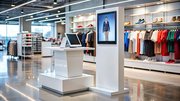Blog
Overcoming "growing pain" barriers in the platform economy
Lori A. Torres, founder and CEO of Parcel Pending, believes solution-oriented retailers and entrepreneurs must innovate to address barriers within the delivery ecosystem.

January 28, 2020 by Lori Torres — CEO, You know!
It’s no secret consumers are turning to their mobile devices and computers to do their shopping. In response, shipping volume has increased considerably, likely hitting record highs. In 2018, more than 2.5 billion packages were shipped during the holiday season, up from 2.3 billion in 2017.
But many aspects of society may not be sufficiently prepared for the influx related to the "platform economy." As delivery volumes increase, so does the use of U.S. highways, freeways, and roads, causing congestion and contributing to a larger carbon footprint. Similarly, more shipping requires more packaging — and a massive amount of packaging waste. And at the consumer end, a worrisome type of crime is on the rise — package theft. One in four people have fallen victim to package theft, and more than half know someone who has. The average value of stolen packages is around $140.
Solution-oriented entrepreneurs must innovate to address these barriers if they want to play a key role in the e-commerce ecosystem. They should start with the most basic fundamental in the platform economy: goods movement. Parcel delivery requires a series of handoffs to get goods from point a to point b, concluding with a brief stopover at distribution center and then transport to the end point, the consumer. Simple enough.
Unfortunately, the explosive growth of e-commerce has yielded a cascade of complications. A recent New York Times article identified a few of the hurdles associated with moving goods through city streets, including gridlock, roadway safety and pollution. Many companies are already considering how these issues can be alleviated.
In October 2019, Wing began drone deliveries in Virginia, and autonomous driverless vehicles are moving from taxi service only to package delivery. In some jurisdictions, micro-hubs are accepting a city’s worth of daily shipments and then dispatching individual packages via bike service.
While many of these new initiatives expedite and simplify package delivery, still to be determined is how to better address sustainability. Despite more environmentally friendly packaging, there is still too little focus on design for recycling and reuse in the circular economy. Smart entrepreneurs will consider not only how to design packaging that is intended for recycling and reuse, but also strategies and products that provide value to large e-retailers, such as green logistics options that give platforms and consumers the opportunity to offset emissions linked to purchases and reward consumers who choose "sustainable" sellers.
The prevalence of package theft presents opportunities to develop new models for end point delivery. One growing option, known as "click-and-collect," entails rethinking drop-off options. During my 25 years of experience in real estate management, I frequently lamented the challenge with package delivery in multi-unit communities like apartments and university dorms. After earning my MBA at Pepperdine Graziadio Business School, I launched Parcel Pending, electronic "smart lockers" which eliminate the chaos of package management.
Henry Ford once said, "If I had asked people what they wanted, they would have said faster horses." Just as transportation transitioned from horses to cars, the world of commerce is changing — and entrepreneurs must keep pace. Those who identify barriers and turn them into opportunities in that ecosystem will be best situated to succeed.
 ChatGPT
ChatGPT Grok
Grok Perplexity
Perplexity Claude
Claude




